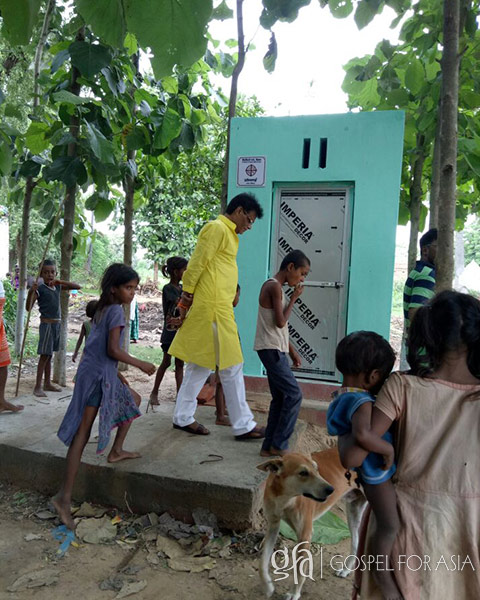
The numbers from the survey had finally come in, and the problem was even greater than Ritain had previously thought. Around 252 families living in his district had no sanitation facilities, a dangerous threat to their health and safety. How could he, the district head, meet their needs?
Risking Their Lives to Relieve Themselves
Nearly 1,600 families lived in Ritain’s district, which comprised eight villages. Because this region was underdeveloped, poverty lay claim to the majority of families. They made what money they could, but all their earnings went to their survival, leaving little for anything else—including hygiene. The villagers were forced to defecate in open fields and risked the dangers of wildlife and disease. Women were especially vulnerable; their dignity and safety were threatened.
Their situation was not an isolated problem. The World Health Organization estimates that 673 million people globally defecate in the open, with 432,000 perishing each year from diarrheal deaths.[1] Even the most basic sanitation facilities did not exist in Ritain’s village. He understood he must provide those most at-risk with facilities, but he couldn’t do it alone.
Providing Toilets to Keep Them Safe
After identifying the families who needed a toilet, Ritain called the local Gospel for Asia (GFA) leader.
GFA workers collected the supplies and manpower needed to install the facilities, and once the installation was complete, around 252 families received a toilet. Gathering the recipients, the Gospel for Asia (GFA) workers and Ritain instructed them how to properly use and clean the facilities to keep safe from disease.
All the beneficiaries were ecstatic at the gift. The women were especially happy; they no longer needed to put themselves in danger every time they needed to use the toilet. They finally had a safe place to privately relieve themselves. No more would they need to venture out into the fields to do so.
[1] “Sanitation fact sheet.” World Health Organization. 14 June 2019. https://www.who.int/en/news-room/fact-sheets/detail/sanitation
